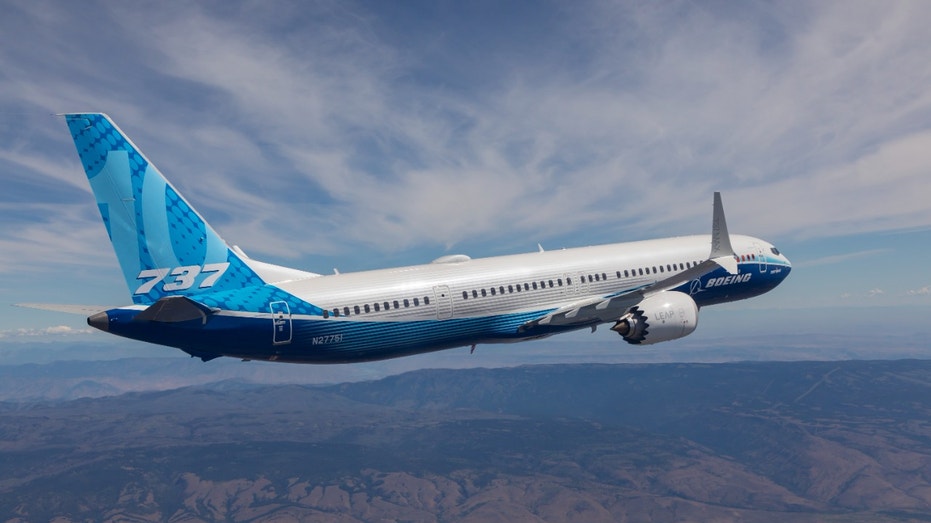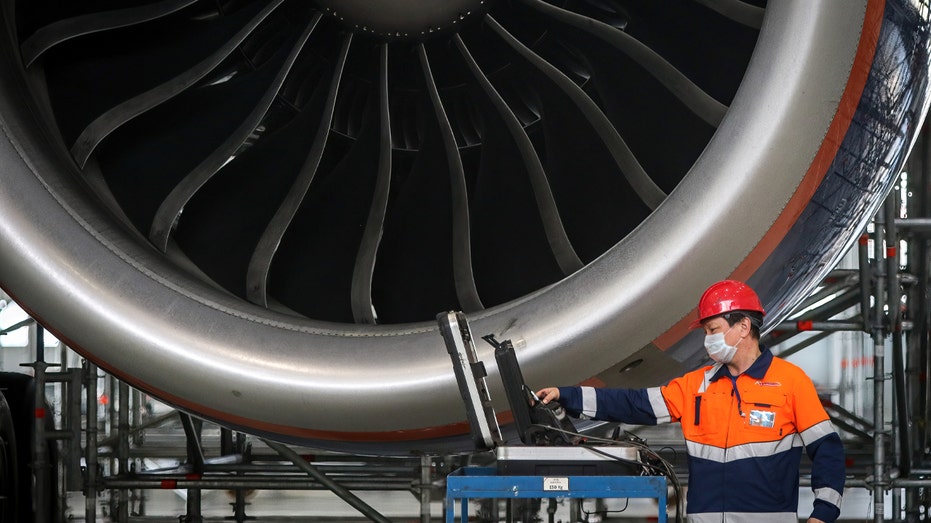To bring the old Boeing back, profit isn’t enough
Delta Air Lines flight makes emergency landing after plane fills with smoke
Delta Air Lines Flight 2846 was forced to make an emergency landing Tuesday at Albuquerque International Sunport after smoke filled the cockpit and cabin. (Credit: @MattJohnsonNEWS via Storyful)
Boeing investors are rightly focused on when the company will make decent money again in 2023 after an ignominious few years. But they should also ask a more existential question: When will this plane maker make planes again?
Earlier this month, Boeing’s facility in Everett, Wash., assembled its last 747, the jumbo jet that opened a new era of luxury flying when introduced in 1970. When its retirement was first teased in 2016, it didn’t look as if Boeing was giving up engineering and commercial dominance. Its 777 had shown from the mid-1990s that two-engine jets were the future. Its last clean-sheet model, the 787 Dreamliner, had been flying since 2011.
The void left by the 747 feels larger now. In November, Boeing Chief Executive David Calhoun shocked investors by indicating that no brand-new commercial designs would grace the skies until at least the mid-2030s.
Military personnel watch as Air Force One, with President Donald Trump, aboard prepares to depart at Andrews Air Force Base in Md., Friday, Feb. 17, 2017. After more than half a century, Boeing rolled its last 747 out of a Washington state factory on (AP Newsroom) Since 2019, Boeing has had to deal with the grounding of its 737 MAX, Covid-19, the suspension of 787 deliveries, supply-chain issues and uncertainty about its standing in China. Just increasing production of existing models and delivering the 400 jets accumulated in storage is a complicated enough task, but Mr. Calhoun has also been dealing with snags in the defense arm and a certification tussle in Washington D. C.—which, as of last week, ended up going Boeing’s way. THE WEIRD-LOOKING, FUEL-EFFICIENT PLANES YOU COULD BE FLYING IN ONE DAY Investing in a new plane usually causes aerospace stocks to underperform, particularly around scheduled first flights, given problems and cost overruns. It could mean burning $30 billion—almost all of the free cash flow that Boeing is expected to generate between 2023 and 2026, as it returns to profitability. Investors want a break. Boeing shares are attracting value investors and have finally outpaced the S&P 500 index over the last three months. Orders for Boeing’s existing portfolio are booming: United Airlines recently said it would buy 100 more MAXs and 100 more Dreamliners. Losing sight of the horizon is risky, though. Europe’s Airbus has already overtaken its American rival in both orders and deliveries and can back Boeing into a corner simply by upgrading existing models. Outside of the higher-volume routes dominated by Airbus’s elongated A321, the 737 MAX is close in market share to the A320 family. But Airbus need only retrofit it with a new composite wing to make the 737—a 1960s design that can’t be evolved further—obsolete. Boeing could struggle to respond quickly if its engineers have spent more than 20 years without designing a product from scratch. The 737-10, the largest member of the 737 MAX family, will provide operators with more capacity, greater fuel efficiency and the best per-seat economics of any single-aisle airplane. (Boeing) Executives may have learned the wrong lessons from the 737 MAX crisis and the Dreamliner’s problems. Product design was never Boeing’s weakness: The lean 787 was a prescient bet as Airbus was doubling down on its A380 jumbo. Upgrading the 737 one final time, which many lambaste in hindsight, has been a commercial success. In theory, it freed resources to invest in a midrange jet that could have surpassed the A321 and become a testing ground for new digital design tools—an idea floated seven years ago. AIRBUS CEO DETAILS BROAD POST-CRISIS INDUSTRIAL HURDLES Where the company has gone wrong over the past couple of decades has been in allowing bean counters too much control over the development process, leading to overly complex supply chains and deficient quality controls. Now financialization seems to have taken a different form: Mr. Calhoun said any new jet will need to provide cost advantages of 20% or 30% to carriers. More than half of the savings would need to come from the development of a whole new type of turbofan by engine makers CFM and Pratt & Whitney. It will be too early for hydrogen or hybrid-electric propulsion. An employee inspects the engine of a Boeing-777 aircraft during the opening of the A-Technics engineering center at Moscow-Sheremetyevo Airport. (Photo by Leonid Faerberg / SOPA Images/Sipa USA)No Use Germany. (Reuters) Those goals seem excessive by historical standards. Airlines would likely still love a plane that delivered half of those gains, because they are eager to shrink their environmental footprint. Without new models, aircraft efficiency gains will halve through 2035, leading the aviation industry to undershoot its green pledges, the International Council on Clean Transportation estimates. Crossing advances made in CFM’s and Pratt’s latest engines, together with some improvements in airframes, could allow for a viable new jet. CLICK HERE TO GET THE FOX BUSINESS APP In its nostalgia for the Boeing of yesteryear, Wall Street risks forgetting that it wasn’t just a cash cow, but also a company that could deliver cutting-edge products. There is a precedent for what happens to plane companies without them: McDonnell Douglas. It was bought by Boeing in 1997. Source: Read Full ArticleTicker Security Last Change Change % BA THE BOEING CO. 188.91 +0.53 +0.28% UAL UNITED AIRLINES HOLDINGS INC. 37.92 +0.63 +1.69% Ticker Security Last Change Change % EADSY AIRBUS SE 29.68 +0.29 +0.99%



